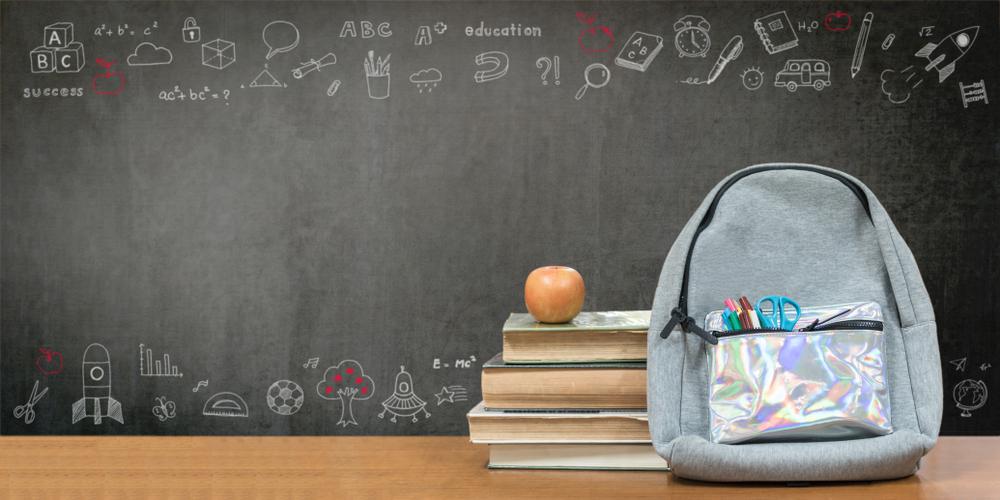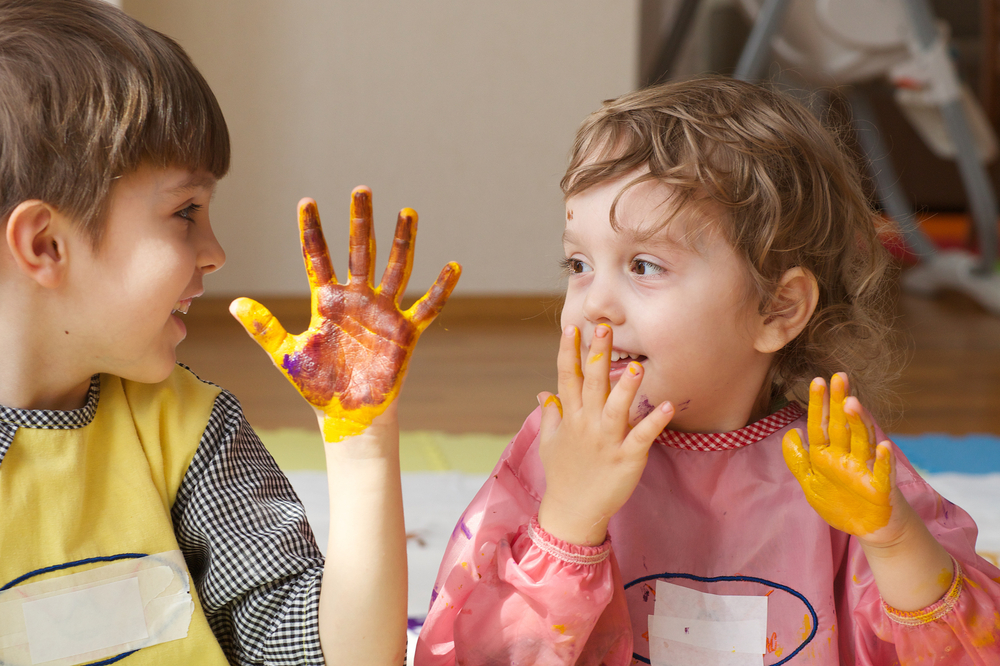Sequence Understanding Worksheets for 4-Year-Olds
6 filtered results
-
From - To
Introducing our "Sequence Understanding Worksheets for 4-Year-Olds," crafted to foster early cognitive development in young children. These engaging worksheets enhance kids' ability to recognize patterns, order events, and comprehend logical sequences. Perfect for preschoolers, the activities help build a solid foundation for later academic skills, promoting critical thinking and problem-solving. Each worksheet is designed with colorful illustrations and fun themes to captivate young minds while they learn. Ideal for both classroom settings and at-home practice, our worksheets offer a valuable resource for parents and educators looking to support early learning in an enjoyable and effective way.
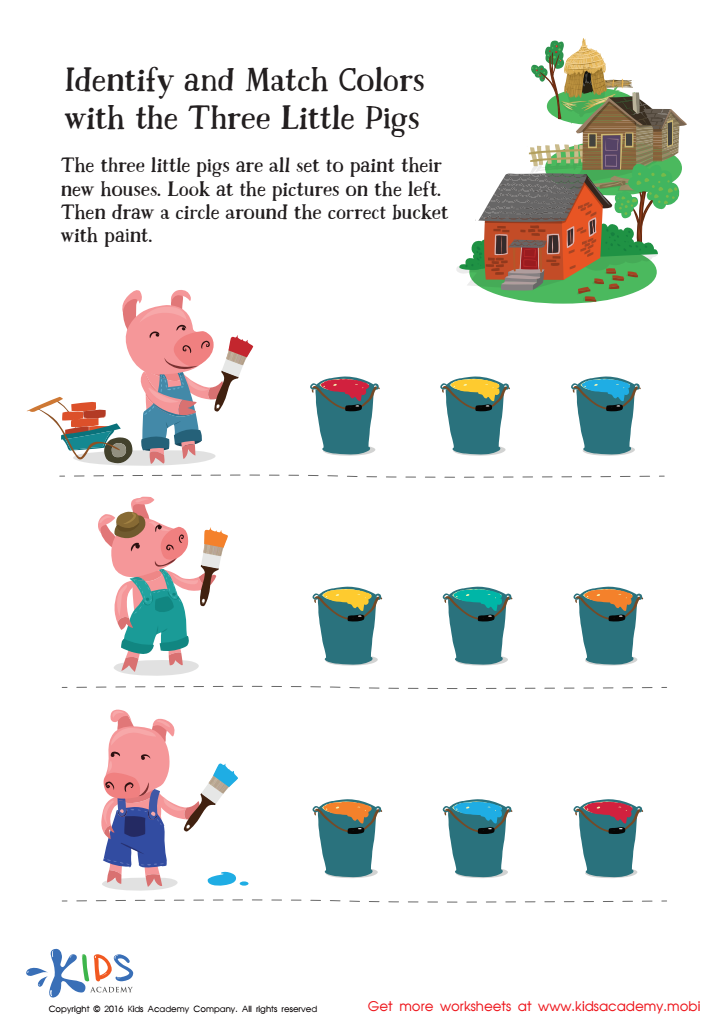

Fairy Tale Worksheet: Identify and Match Colors with Three Little Pigs
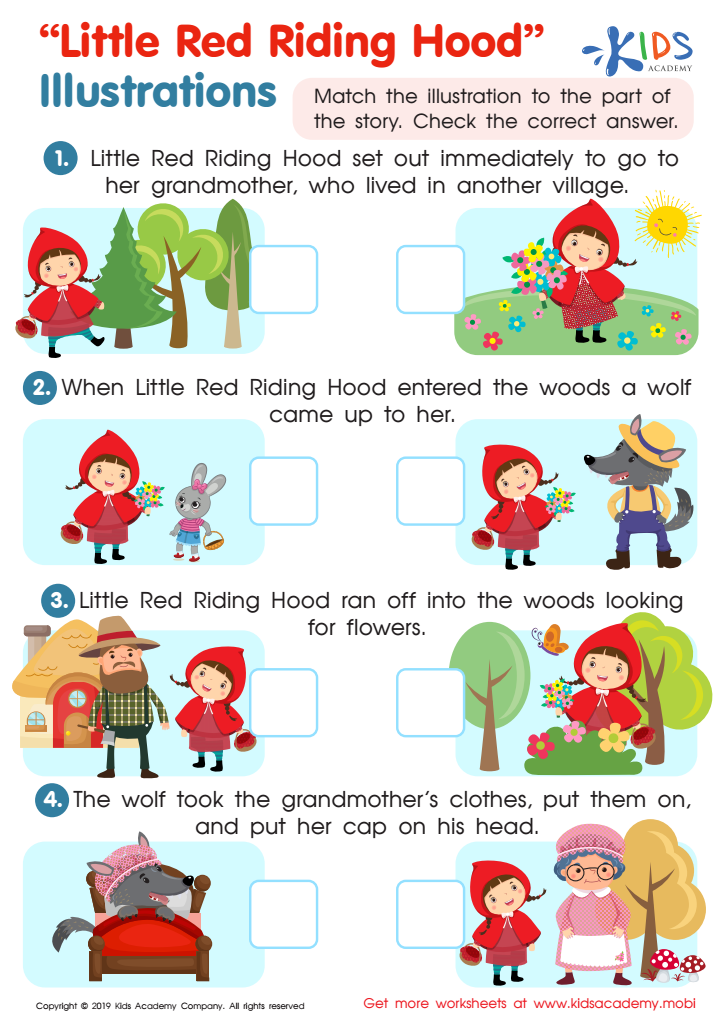

Little Red Riding Hood: Illustrations Worksheet


Alien Worksheet


The Five Little Monkeys Nursery Rhyme Worksheet
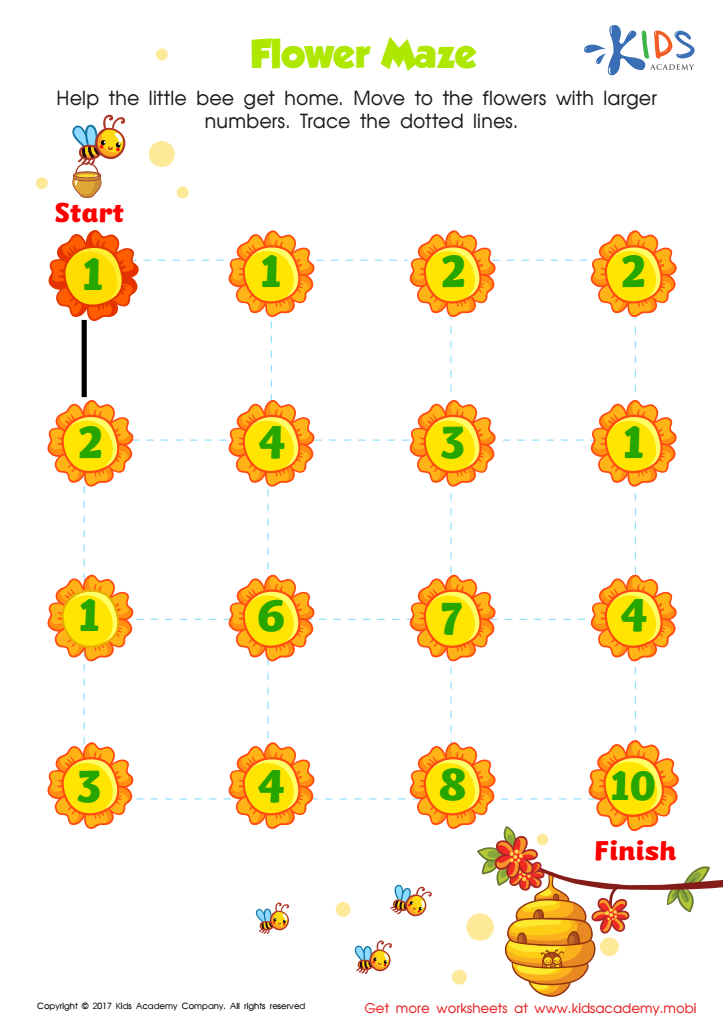

Number Maze For Kindergarten Printable
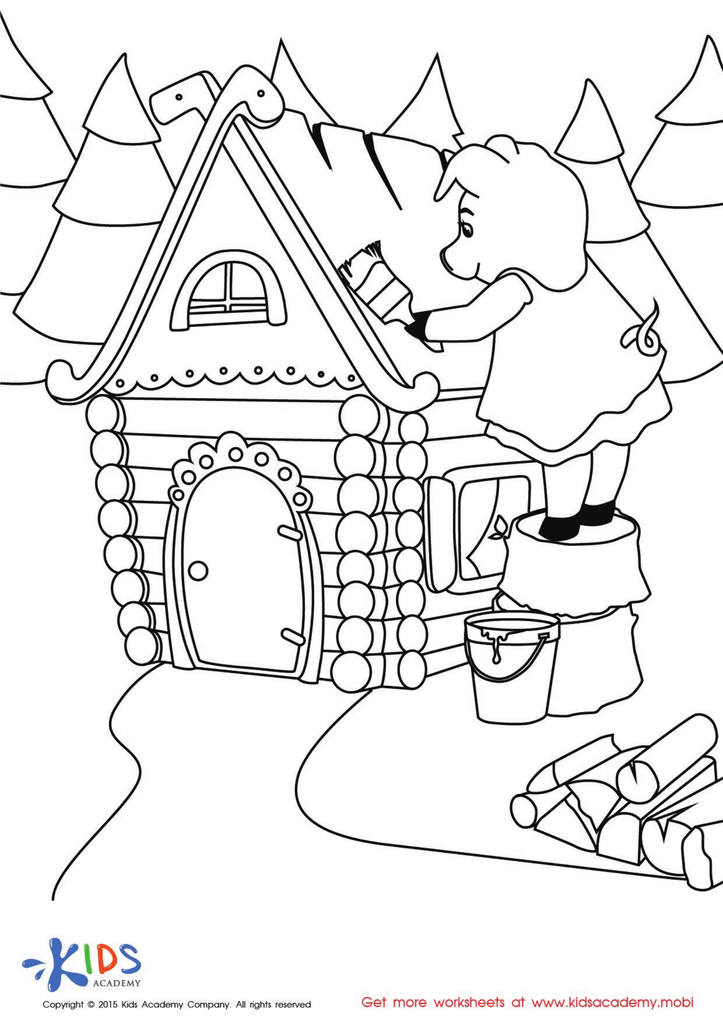

The Three Little Pigs Worksheet
Sequence understanding is essential for 4-year-olds as it lays the groundwork for numerous cognitive and academic skills, especially literacy and mathematical development. When children comprehend sequences, they're better able to make sense of the world around them. For instance, recognizing the order of daily routines, such as getting dressed, eating breakfast, and going to school, fosters a sense of security and predictability. This understanding helps them anticipate what comes next, which can reduce anxiety and enhance confidence.
From an educational perspective, grasping sequences is vital for early reading skills. Stories have a beginning, middle, and end; understanding this structure is a precursor to comprehending more complex narratives. Furthermore, recognizing patterns in sequences is foundational to math skills. For example, understanding numerical progression (i.e., counting in order) is crucial for learning addition and subtraction.
Finally, fine motor skills and problem-solving abilities develop when children practice sequencing through activities like sorting objects, following multi-step directions, or engaging in role-play scenarios. Teachers and parents should therefore prioritize sequence-related activities to support holistic development. This investment helps children build critical thinking skills, fostering lifelong learning and application capabilities in diverse contexts.
 Assign to My Students
Assign to My Students



.jpg)
